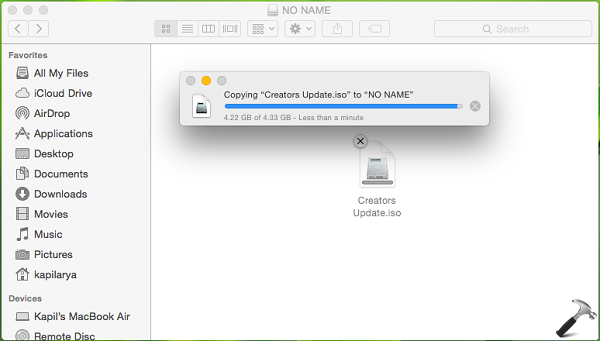exFAT stands for Extended File Allocation Table and it is the advanced version of FAT32 file system. It is designed for flash drives like memory cards, USB devices, etc. It supports storing more files in each directory compared to FAT32. First released with Windows CE 6.0 and then with Windows Vista SP1.
Exfat Or Os X Extended X
It supports media devices like portable media players, flat panel TVs etc. Windows Vista SP1, Windows Server 2008, Windows 7, Mac OS X Snow Leopard 10.6.5, Mac OS X Lion etc., supports exFAT. Windows XP requires a system driver update (KB955704), which is free of cost from Microsoft website for the exFAT support.
exFAT overcomes the problem of free disk space calculation and fragmentation. Scenarios wherein the NTFS file system is not suitable, exFAT is used. exFAT is also known as FAT64 sometimes. exFAT file system driver provides options to format the external devices as exFAT file system, cluster bitmap for faster allocation, contiguous on-disk layout, faster file access through per-file contiguous bit etc.
The exFAT is an acronym for Extended File Allocation Table, introduced in 2006; this file system is created to replace FAT32 and be used on flash drives like USB memory sticks and SD cards. It is a middle ground between FAT32 and the NTFS file systems. Winrar 32 bit offline installer.
- Good day, I am going to backup my drives and would like to know if it is better to have all drives formatted the same way and also regarding performance while opening / editing the photo library. Main SSD drive: APFS 1st Backup drive: OSX extended 2nd Backup drive: ExFat Should I be using.
- Mac OS Extended – Case-sensitive, Journaled, & Encrypted. This format has all three features of the file systems above. In short, file and folder names in this file system are case-sensitive and will require a password and encryption.

Advantages:
- Good space management
- Supports UTC time stamps
- Supports hard disks with large capacities
- Free space bitmap implementation (for free space allocation and deletion performance)
- Supports TFAT (Transaction-Safe FAT file system ) and TexFAT (Transaction-Safe Extended FAT file system)
- Support for Access Control Lists (ACL), is optional
- Supports interoperability between PCs and devices (portable) for easy transferring or sharing of files
- Cluster size up to 32MB
- Overcomes the limit size of file – 4GB
- Provision of OEM-definable parameters (file system customization for specific device characteristics)
- Enables custom extensions through template-based metadata structures
- Enables persistency of these extensions without knowing their format
- File system metadata is aligned on optimal write boundaries of the device
- Cluster heap is aligned on optimal write boundaries of the device (for increasing compatibility with flash media)
Google chrome full download 64 bit windows 7. Disadvantages:
- Involves licensing policy (not an open source technology) because Microsoft asserts patents on exFAT
- Devices, which are formatted as exFAT cannot be used with Windows versions prior to Windows XP
- System driver update is required for Windows XP (KB955704) and Windows Server 2003
- Data input-output performance is low compared to FAT32 because of smaller cluster sizes
- Supports very less number of files per sub-directory compared to NTFS
- No support or limited support for systems other than Mac OS X and Windows
Exfat Or Os X Extended Version
Related Information
Memory Card Recovery Tool
Memory card is the a popular and easy way to store media files in portable flash memory devices like mobiles, media players, digital cameras, etc. Memory cards are connected to Windows and Mac OS using FAT file system. If files are missing from your memory card format then don't stress out. Use Remo Recovery application and get back the lost / missing files in few clicks.

